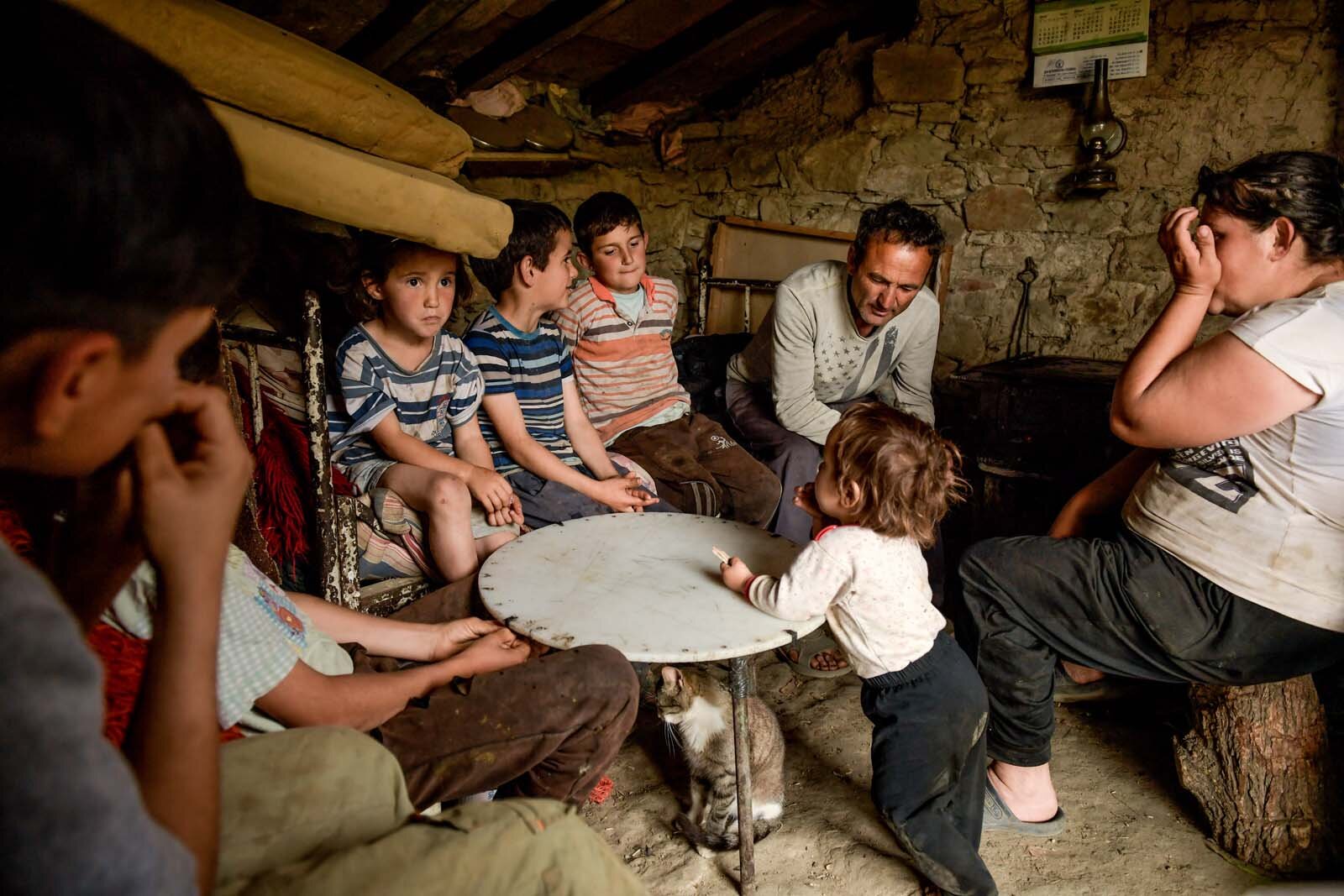Happy Academy Awards Day everyone!
As you’re preparing your at-home ballots and making your predictions, you might be trying to shove in some last minute movies so that you’re more informed for the awards show tonight. Honeyland was my last minute pre-Oscars foreign film pick, as it was nominated in two categories: Best Foreign Language Film and Best Documentary Feature.
Obviously, I think Best Foreign Language Film should go to Parasite, and very little can be done to change my mind about that. But is this movie the Best Documentary Feature of 2019? I had to find out.
Honeyland is a documentary set in Bekirlija, a remote village in Northern Macedonia. Filmmakers Ljubomir Stefanov and Tamara Kotevska were working on a short video commissioned by a nature conservancy project when they came across Hatidze Muratova, a Macedonian beekeeper of Turkish descent. Through her, they saw an important story about the environment and conservation. Muratova believes very strongly in caring for her bees and taking only what she needs, always leaving something for those who provide for her.
But then… all of that changes when a new family rolls in to the village: Hussein Sam, Ljutvie, and their seven children. Yes. Seven. Children. Muratova tries to teach Sam how to keep bees so that he can start his own colony and sell honey. But Sam doesn’t heed Muratova’s advice to only take what he needs. He takes all of the honeycomb from the bees, which causes his bees to attack Muratova’s colony looking for sustenance.
Looking at this movie in terms of plot, the story is incredibly simple and almost fable-like in its tale of morality. And if you’re not getting it, the filmmakers will spell it out for you: Stefanov explains: “The point is to take as much as you need, not to take everything, and leave [something] for tomorrow and those who are providing for you. And it’s a universal message.” Kotevska adds, “The best comparison would be with modern consumerism, because this is like a small world, like a microcosm that has the same rules as all this world about how consumerism destroys the natural resources completely.”
I think most people would agree that this is an important and timely message, and what Honeyland is doing here is significant. They created a strong moralistic narrative out of nothing but observation. There are no voiceovers in this documentary, and nothing but the music to clue you in to how you should be feeling. The filmmakers also had to contend with a lack of electricity while they were filming in these remote locations, which had to be extremely challenging. On top of that, this film is making history as being the first movie to be nominated in both the International Film and Documentary Academy Award Categories.
And yet…
As much as I appreciated what this movie was doing, I found the actual experience of watching it to be extremely boring. There were moments of interest. What most got me were Muratova’s interactions with her sick mother. Their conversations were both touching and often also hilarious. Just like most people’s conversations with their mothers, there were also moments of frustration which were relatable.
Of course, I also loved all the kittens. But if you want to watch an international documentary with a lot of cats in it, might I suggest Kedi?
If Honeyland wins anything tonight at the Academy Awards, I won’t be disappointed. It has an important messaged and I did find myself caring for Muratova and her plight. I wish for nothing but the best for her. However, this movie was not the compelling or memorable type of material that I think will have people talking about it for years to come.
If you’re feeling like having a quiet hour and a half to reflect on the environment and beekeeping, though, by all means, check out this movie. It’s readily available to rent from multiple streaming sources.
Catch you next week.


